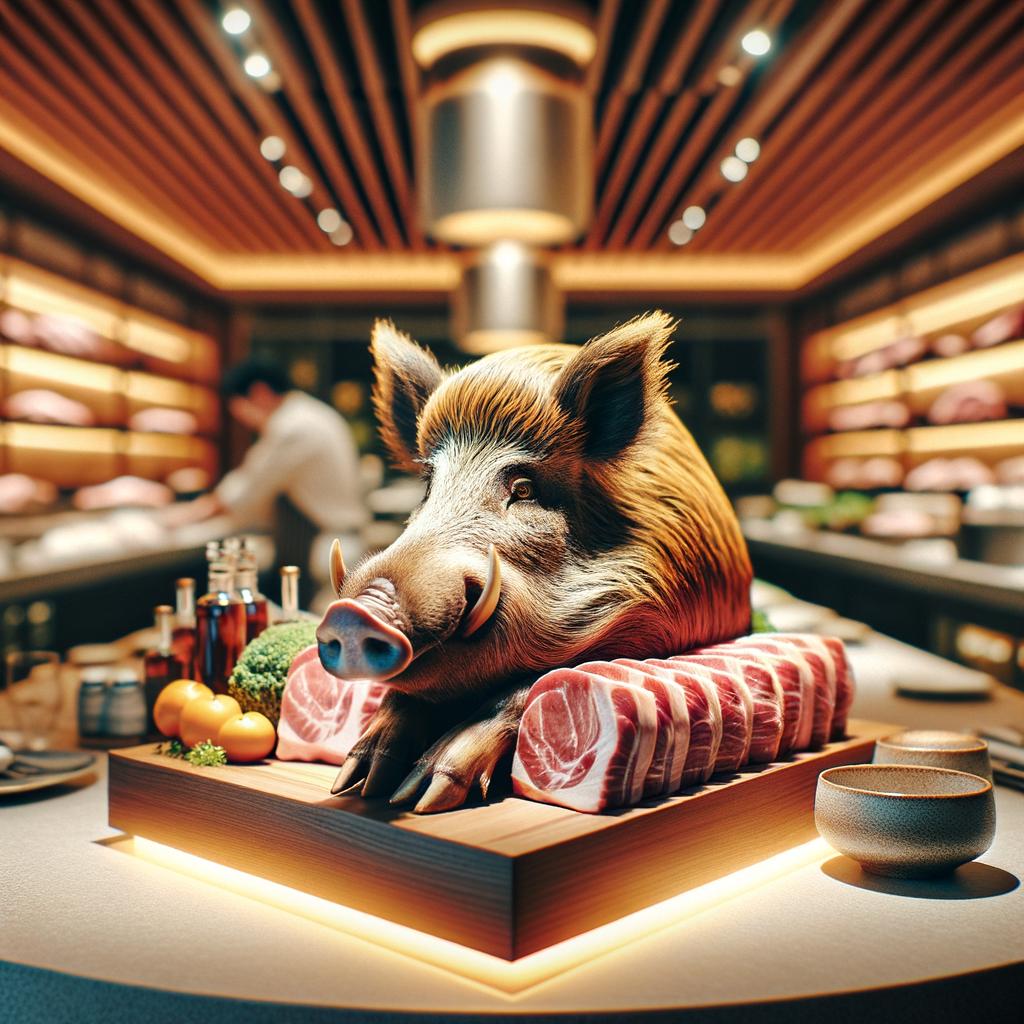Wild Boar Meat

Description
Wild boar meat, a delicacy that harks back to our primal roots, is an ingredient that commands respect and curiosity. Unlike its domesticated cousin, the pig, wild boar meat possesses a deep, rich hue, ranging from a dark red to a nearly mahogany color. Its texture is firm yet tender, and it carries a robust, nutty flavor that is far more complex and nuanced than the pork you might find at your local supermarket. The meat's distinct flavor is a testament to the boar's diet of nuts, roots, and small animals, setting it apart from other game meats.
Primary Uses
Wild boar meat is a versatile ingredient that can be grilled, roasted, braised, or even smoked. It is commonly used in a range of cuisines, from the hearty stews of Tuscany to the traditional barbecues of Texas. In Eastern Europe, wild boar meat is often used in goulash, providing a rich, hearty base for the stew. Beyond its culinary uses, wild boar meat has been a symbol of bravery and nobility in many cultures, often used in ceremonial feasts and rites.
History
The history of wild boar meat is as old as human civilization itself. These formidable creatures were hunted by our ancestors for their meat, and their presence is immortalized in ancient cave paintings. The Romans considered boar hunting a sport of the elite, and their feasts often featured a roasted boar as the centerpiece. Over time, the consumption of wild boar meat became less common due to the domestication of pigs. However, in recent years, it has seen a resurgence as chefs and food enthusiasts seek out its unique flavor and historical significance.
Nutritional Information
Wild boar meat is not only a feast for the palate but also a boon for health. It is leaner and contains fewer calories than domestic pork, yet it is rich in high-quality protein. It also provides a good source of vitamins and minerals, including Vitamin B1, Zinc, and Iron, which are essential for a healthy immune system and metabolism. However, as with all meats, it should be consumed in moderation to maintain a balanced diet. Compared to other game meats, wild boar has a higher fat content, but its fat is considered healthier due to the animal's natural diet and active lifestyle.
In the end, wild boar meat is more than just an ingredient; it's a taste of our history, a testament to our evolution, and a reminder of our connection with nature.

